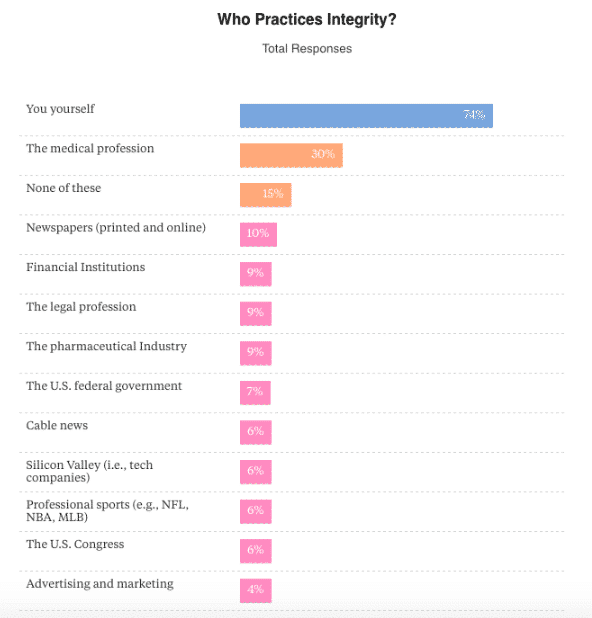media update’s Taylor Goodman unpacks why audiences struggle to trust marketers and how marketing professionals can work to rebuild that trust.
In the past, advertising stood centre stage in the everyday lives of consumers. Every commercial break they would tune into would show ad after ad; they would see glossy advertisements in any magazine they read and, when they were driving down the street, they would be met with billboards aplenty.
Although adverts are still a relevant part of our lives, there has been a significant shift in how marketers sell them and this is largely due to
ad fatigue. According to Hubspot, this “
occurs when your audience sees your ads so often that they become bored with them and stop paying attention.”
However, this doesn't just arise when a customer has seen one too many ads, but also when the advertisements they are seeing are overblown and unauthentic. It’s common for advertisers to claim that their product is ‘life-changing’ or the ‘best on the market.’ And while these products may be good, this exaggeration can repel audiences.
The relationship between marketers and consumers has always been a fickle one. A marketer’s job is to
sell,
sell,
sell — and sometimes their methods of doing so can be questionable in the eyes of the public.
4As and Ipsos OTX conducted a survey that reported that
only 4% of respondents believe that marketers practice integrity.
These respondents were then asked why they think those working in the media industry lie, 69% of respondents believe it is because they want to “sell more effectively”. This was closely followed by 62% believing that they also lie “
to make themselves look better”.
 Image sourced from Ipsos OTX and 4As
Image sourced from Ipsos OTX and 4As
With this in mind, there are two sides to every story. Marketers don't fluff up their campaigns with ill intent — they do it to make sales! What a customer may view as dishonesty could simply be a brand trying to paint a pretty picture so that they can sell their product — and there's nothing wrong with that.
As long as marketing and advertising have been a thing, it has been the advertiser’s role to highlight the best in their products. Where the trouble arises is when unethical tactics are used to make sales, like pop-up ads, insensitive messaging or outlandish publicity stunts. These strategies are outdated and consumers know it.
These days, virtually anyone can start a successful business, leaving the public spoilt for choice and causing them to be picky about who they choose to support (
but more on that later.)
It may be easier to comprehend why the public has such strong feelings against marketers by taking a deeper look at
how and
why consumer behaviour has shifted the landscape of marketing.
How consumers have changed the marketing landscape
There has been a significant change in what consumers demand from brands over the last few years. In the past, marketing was all about polished campaigns and grandiose storytelling where fictional characters were created to sell a product.
A shining example of this is Ronald McDonald, the clown that is synonymous with the McDonald's brand. Ronald served as the face of the fast-food franchise for many years and was created to bring some fun to the brand and appeal to children, who would then beg their parents to take them back to McDonald's again and again.
In recent times, marketing has shifted away from tactics like this to focusing on
real people with
real-life experiences. Consumers are no longer passive receptacles of advertising hyperbole — they are more clued into how marketing and advertising works and they want
authenticity.
Honesty, credibility and trust have emerged as buzzwords in the marketing industry during 2020. This is a reflection of how the public’s expectation of brands has changed to demand that they should be more socially conscious and real in their marketing messages.
Consumers want brands to
prove that they are trustworthy and they want to know that the companies they support have morals and values that match their own. This helps them to build a deeper connection with the businesses they support, as consumers start feeling like family.
Ad campaigns that are unfiltered and relatable will enable brands to form an emotional connection with their audience. With time and effort, this can flourish into a solid base of loyal supporters and a positive brand reputation, something that all businesses strive for.
What do you look for in the brands you support? Be sure to let us know in the comments section below.
Well, you’ve made it this far. Why not sign up for our newsletter while you’re here?
Want to learn more about how to build trust in marketing? Then be sure to check out our article, Ethical marketing: Five brands who got it right.
*Image courtesy of Pixabay